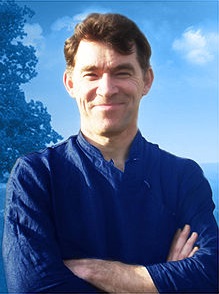Guest writer for Wake Up World
As a psychologist, I have been studying what I call “awakening experiences” for a decade, and have recently published (with a co-author) a new study of 90 such experiences in The Journal of Transpersonal Psychology.
Awakening experiences are moments in which our awareness expands and intensifies. We transcend the worries that normally preoccupy us and feel a sense of elation or serenity. Our perceptions of the world around us become more vivid, and we feel a sense of connection to nature, other human beings or the whole universe in general. We feel a sense of love and compassion, and there is a strong sense that we have transcended a limited state, and that awareness has become more authentic than normal. At higher intensities of awakening experiences, we may even feel that we have lost our normal sense of identity and somehow become one with the whole world.
[pro_ad_display_adzone id=”110028″]
My research has found that there are three contexts that consistently show up as major triggers of awakening experiences. Around a third occur in situations of stress, depression and loss. For example, a woman described how she was devastated by the end of a seven-year relationship, “facing a suffering that I didn’t imagine could possibly exist.'” However, in the midst of this suffering, she “began to experience a clearness and connection with everything that existed…I was in a state of such pure happiness and acceptance, that I was no longer afraid of anything. Out of that depth arose such a compassion and connection to everything that surrounded me.”
The second major trigger of awakening experiences identified by my research is contact with nature. Around a quarter of the experiences take place in natural surroundings, apparently induced by the beauty and stillness of nature. People reported awakening experiences that occurred while they walking in the countryside, swimming in lakes, or gazing at beautiful flowers or sunsets. And the third most significant trigger of awakening experiences according to my research— with a similar frequency to contact with nature—is spiritual practice. This primarily means meditation, but also includes prayer and psycho-physical practices such as yoga or tai chi. The relaxing, mind-quietening effect of these practices seems to facilitate awakening experiences.
Enduring Transformation
However, perhaps the most significant thing about awakening experiences is their after-effects. Even though they are typically of a very short duration—from a few moments to a few hours—they frequently have a life-changing effect.
Many people described an awakening experience as the most significant moment of their lives, reporting a major change in their perspective on life, and in their values. In our 2017 study of 90 awakening experiences, the most significant after-effect was a greater sense of trust, confidence, and optimism. For example, one person reported that even though “that whole experience was brief, it left a little piece of knowing and hope. While I still was and am on a journey of self-reflection, it left me knowing that your inner truth is always there for you.” Another person reported that, “To know that it’s there (or here, I should say) is a great liberation.”
One person had a powerful awakening experience while suffering from intense depression during which she “felt the most intense love and peace and knew that all was well.” The experience only lasted for a few minutes, but in its aftermath, she found that the feeling of dread had disappeared from her stomach, and she felt able to cope again, which led to a new, positive phase in her life. As she described it, “I looked around and thought about all the good things in my life and the future. I felt more positive and resilient.” Another person described how her awakening experience “allowed me a glance into the other side and opened me to the knowing that I am never separate, alone, nor unheld.”
Such changes in attitude sometimes led to significant lifestyle changes, such as new interests, new relationships and a new career. Some people reported becoming less materialistic and giving up high-powered professional careers for a simpler, more altruistic lifestyle.
This shows that awakening experiences have a powerful therapeutic effect. They make us realize that the world is a much more benign and meaningful place than we normally perceive it to be. And once we have glimpsed this, it becomes a permanent reality to us. As the great psychologist Abraham Maslow noted – in relation to what he called peak experiences — ‘A single glimpse of heaven is enough to confirm its existence.’
Recommended articles by Steve Taylor, Ph.D:
- Transformation Through Dying: The Aftermath of Near Death Experiences
- Elation: The Amazing Effect of Witnessing Acts of Kindness
- The Power of Forgiveness: The Transformational Effect of Letting Go of Resentment
- More Than a Chemical Imbalance – Why Depression Cannot Be Cured By Medication Alone
- Harmony of Being – Returning to Our True Nature
- Transcendent Sexuality — How Sex Can Generate Higher States of Consciousness
- The Power Of Silence
- Happiness Comes from Giving and Helping, Not Buying and Having
- Empathy – The Power of Connection
- If Women Ruled the World – Is a Matriarchal Society the Solution?
- The Puzzle of Near-Death Experiences
- The Voice Inside Your Head
- Beyond Anxiety: The Roots of Anxiety and How to Transcend It
About the author:
Steve Taylor is a senior lecturer in Psychology at Leeds Beckett University, UK. His latest books in the US are The Calm Center and Back to Sanity: Healing the Madness of the Human Mind. He is also the author of The Fall, Waking From Sleep, and Out Of The Darkness. His books have been published in 19 languages. His research has appeared in The Journal of Transpersonal Psychology, The Journal of Consciousness Studies, The Transpersonal Psychology Review, The International Journal of Transpersonal Studies, as well as the popular media in the UK, including on BBC World TV, The Guardian, and The Independent.
Connect with Steve at StevenMTaylor.com.
[pro_ad_display_adzone id=”110027″]








